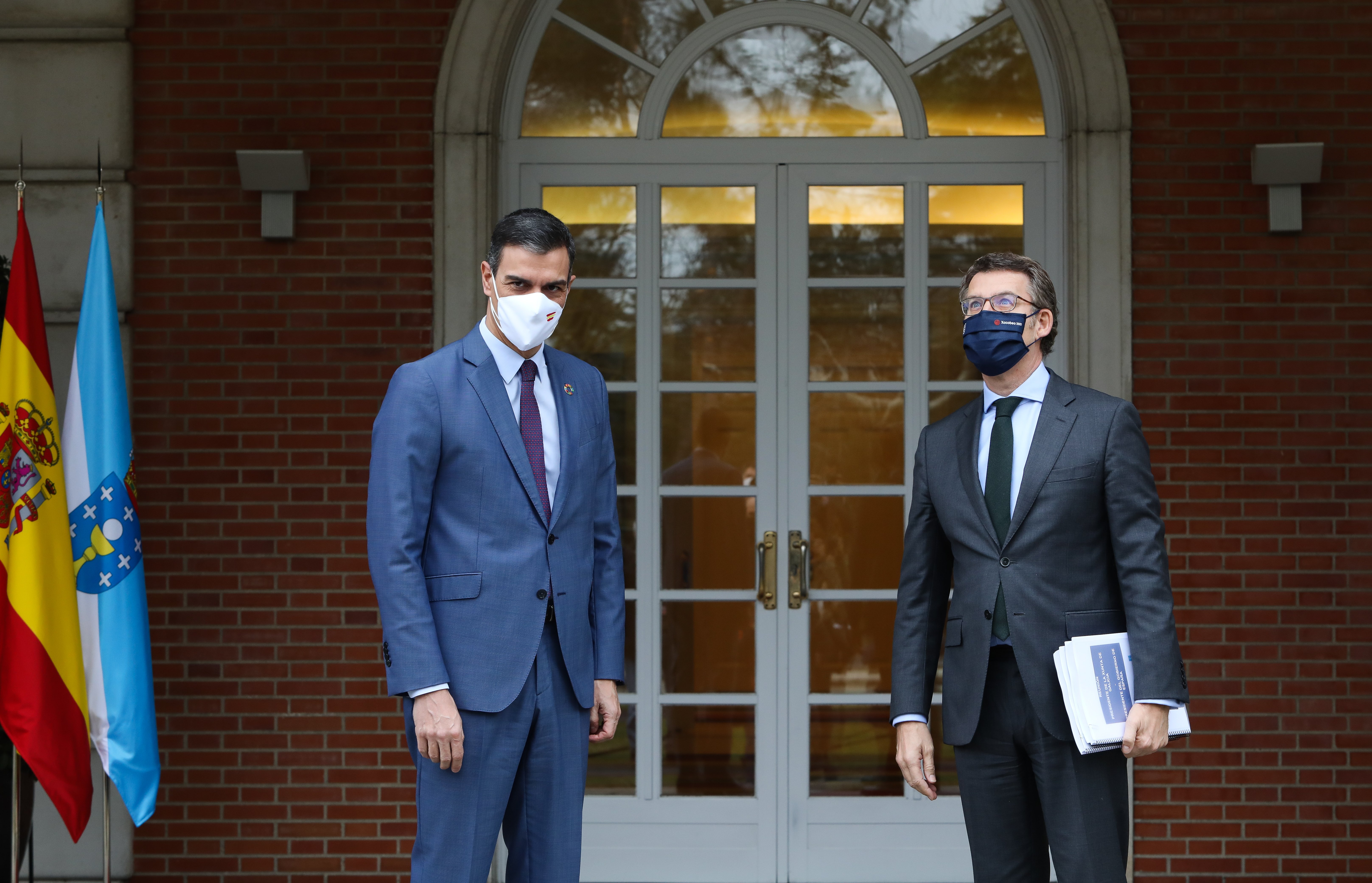Mixed messages from the polls for Spain's governing Socialists (PSOE). Despite no shortage of polls predicting a poor result for the PSOE in this coming Sunday's autonomous community elections in Andalusia, Spain's CIS public research agency gives some good news to Pedro Sánchez's party in its latest survey on a hypothetical election to the Congress of Deputies. According to the CIS, the Socialists (PSOE) would lose more than one percent of the vote it obtained in the last poll, to 29.2%, but would nevertheless manage to increase their advantage over the People's Party (PP) to 2.2 points. This increased lead is due to leader Alberto Núñez Feijóo's PP falling by 1.7 points in a month. The survey was carried out between June 1st and 9th and points to a loss of momentum by a PP that had been gaining support for several months since the replacement of Pablo Casado by Feijóo.
CIS poll June 2022: Voter preferences in a hypothetical Spanish election (in % of valid vote)
For its part, far-right Vox remains the third largest political force in the Congress of Deputies with an estimated 16.5% of the vote (one tenth of a percent less than in May). The party led by Santiago Abascal has not been harmed by the Feijóo effect as they have maintained similar results in recent months: according to the May survey, Vox reached 16.6% of the vote estimate, thus growing by 2.2 points over its April percentage. The other side of the coin is Unidas Podemos, which again fails to reach even double figures (9.8%) in voting intention, according to the poll. Despite the poor results for Podemos, it should be noted that its proportion of the intended vote has grown by two-tenths of a percent compared to May, when the intention to vote was 9.6%.
The next Spanish-wide party on the poll is Ciudadanos (Cs), although the party fails to reach even 2% of voters. In April it stood at 2%, in May it fell to 1.8%, and now it rises one tenth to 1.9%. The Catalan pro-independence parties, for their part, have also maintained a certain consistency in the CIS polls of recent months: measured as a percentage of the overall estimated vote in Spain, ERC loses one tenth and goes from 2.5% to 2.4, Junts remains at the same 1.2% and the CUP falls by two tenths from 0.8% to 0.6%.
PP landslide in Andalusia?
If the survey news for the PSOE at Spanish level is not too bad, the poll predictions for the Socialists' performance in next Sunday's elections in Andalusia are dire. Confirming the results of other opinion surveys, the CIS has released a flash poll this Monday which suggests the PP will win a landslide victory in an autonomous community that has historically been a heartland for the Socialists. According to the CIS, the Andalusian PP aspires to collect between 35.4 and 38.4% of the vote, improving on the prediction of the previous CIS poll, 35.0%, and on its results for 2018, where it obtained 20% of the total votes. However, the highlight is that it would surpass the Andalusian PSOE by ten points: the Socialists are set to win between 23.8 and 26.6% of the vote (down from 27.9% in 2018 when they were still largest party). Vox are expected to win 13.6-15.8% of the vote, up from 11.0% in 2018. These gains on the right are partly fuelled by the collapse of Cs since the last election - they fall from 18.3% in 2019 to a mere 4.5% maximum. Beyond the PSOE, the rest of the left vote goes mostly to the new coalition Por Andalucía, with 9.4-11.4%, while the formerly stronger grouping Adelante Andalucía has slipped substantially.

Preferred leader
In the national level CIS poll, Pedro Sánchez and Alberto Núñez Feijóo are the most preferred leaders and both improve their results with respect to the May survey. A total of 21.2% of respondents choose Sanchez as preferred PM compared to 19.5% who chose him last month, while the PP leader last month had the support of 16.6 % of respondents and now rises to 18.9%. Far right leader Santiago Abascal stays where he is, the prime ministerial choice of 4.6% (4.7% in May). As for Cs leader Inés Arrimadas, we can only indicate that she now has 0.5% support, as she did not register in the CIS poll last month.
Meanwhile the Spanish minister of employment, and rising star on the left, Yolanda Díaz, who in the last survey was the only political leader who obtained a pass mark of over 5 out of 10 from voters, has dropped to 4.91 points, although she is still the best appreciated leader in a context in which no political leader reaches 5. Spain's second-ranked deputy PM is followed by the PP leader who loses gas, from 4.86 to 4.75. The PM, Pedro Sánchez, has a tiny upward movement and rises from 4.28 to 4.31 this June, retaining third place as the most valued politician.

